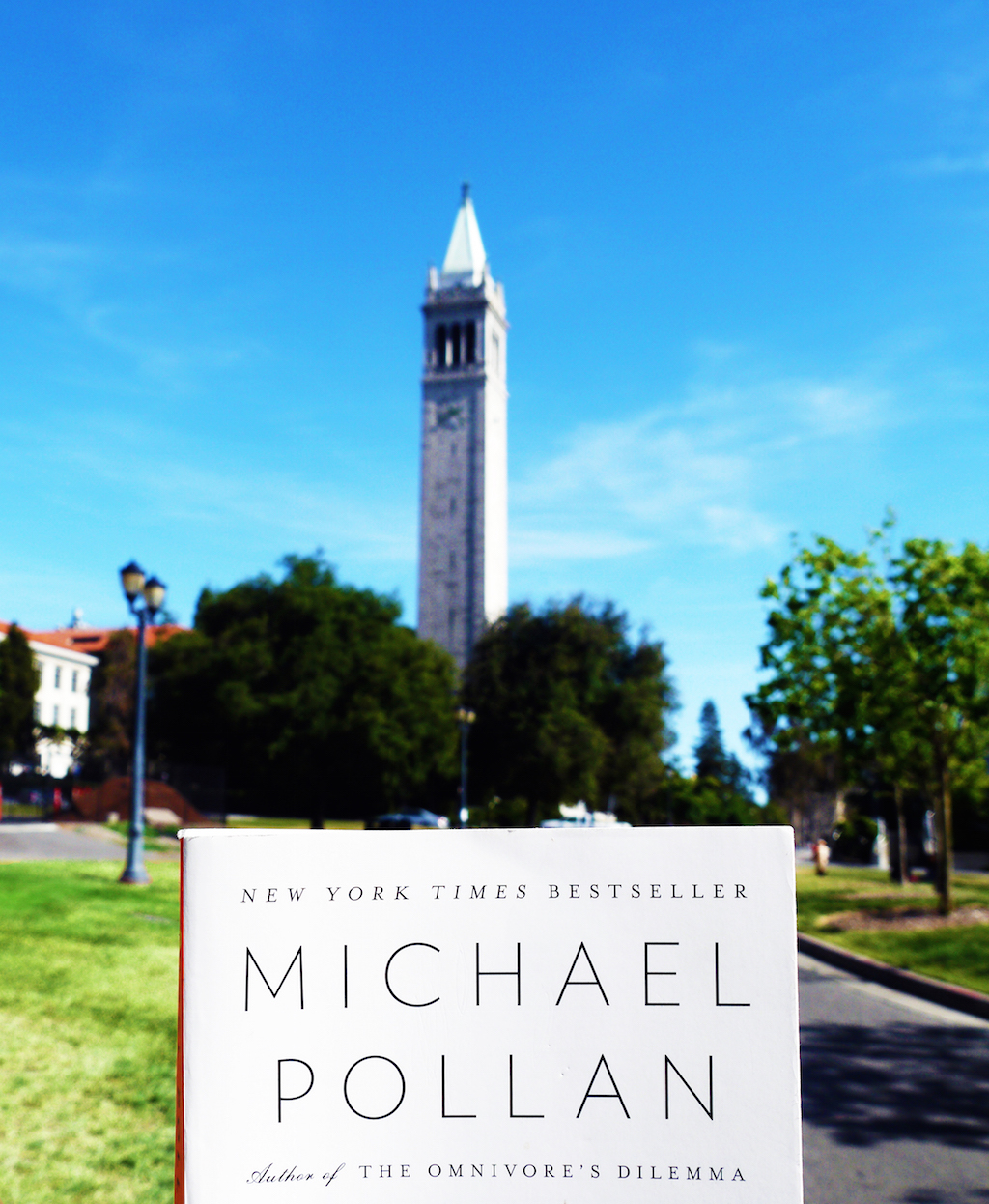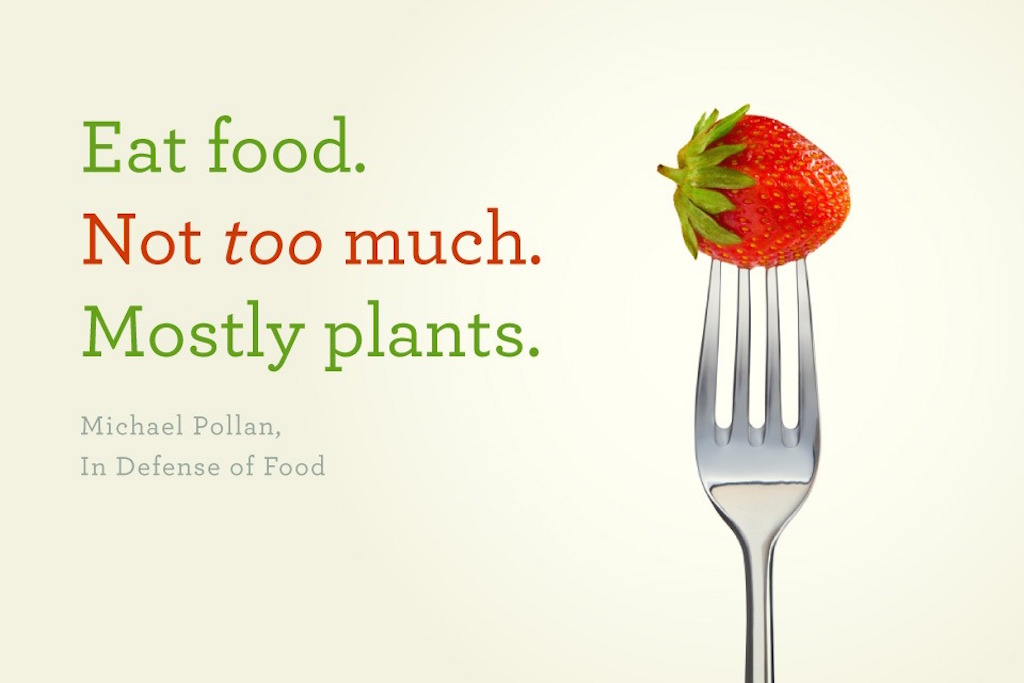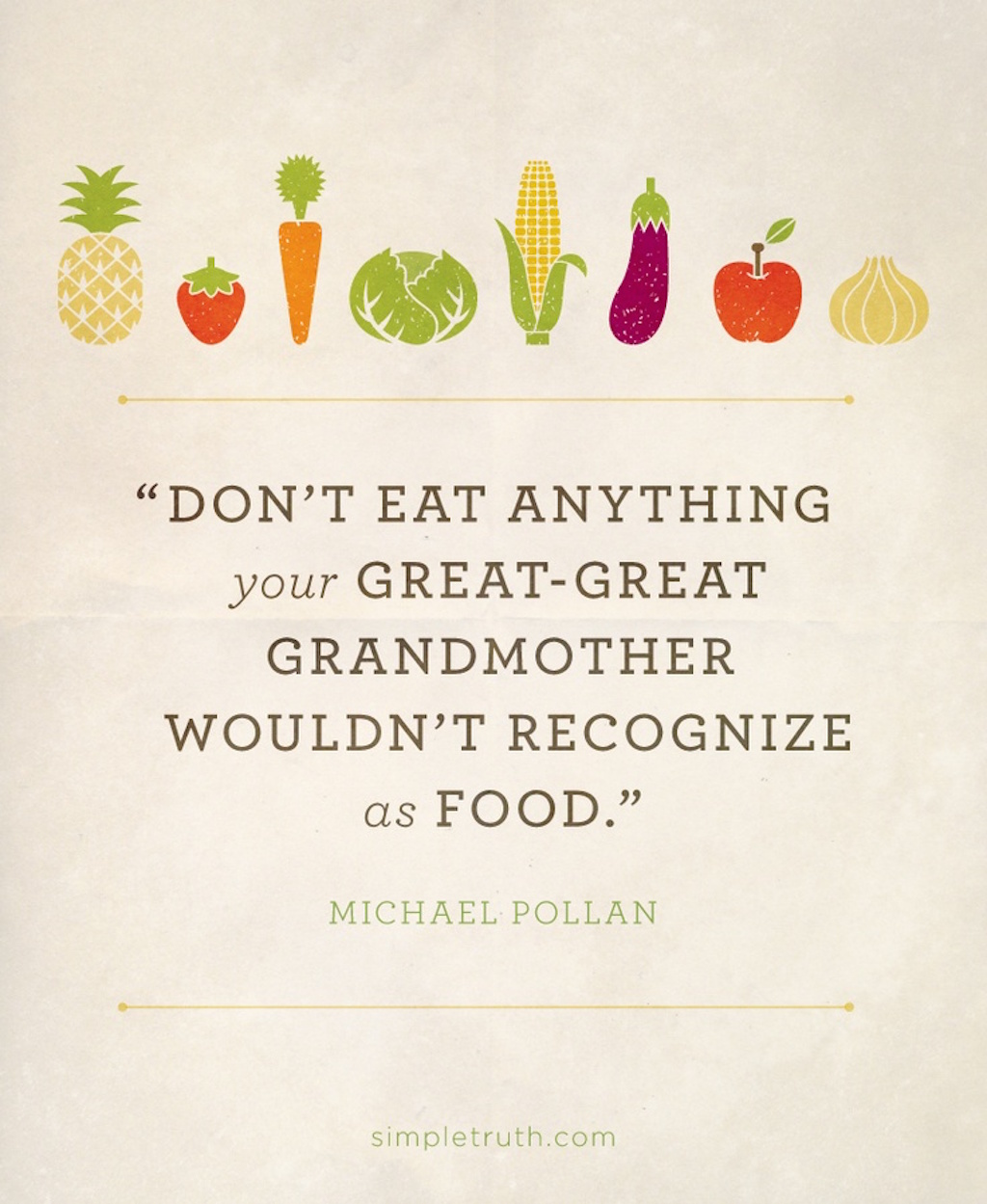Taking a course with Michael Pollan at UC Berkeley was one of the highlights of my undergraduate experience. To say that his teachings were part of what influenced my nutrition-related pursuits, would be an understatement. As a budding journalist, I was tremendously influenced by his work and felt a yearning to involve myself in the field of food and nutrition in an even more comprehensive capacity. It was then that I shifted gears from my journalist path, to one focused on food and nutrition.
I recently had the opportunity to visit my alma mater and hear him speak along with food journalist, Mark Bittman. One of the big takeaways of their talk was that the food system is just that– a system with many integrated parts. How we grow our food affects more than how we eat but has environmental, economic, moral and ethical implications. Changing one part of the system, inherently affects all of these integrated parts. This systems concept is rather new and as Michael Pollan stated ” no one even called it a food system until a few years ago.” The idea that changing one part inevitably affects all other parts, makes the matter of changing the food system seem rather large and unapproachable.
There has been talk of a food policy and though idealistic, it is a lofty goal. This policy would inevitably affect not only what is grown, but what we eat, our health, the environment and the economy. The USDA “My Plate” focuses on 50% of our diets being plant based– fruits, vegetables, nuts, seeds and grains yet only 1% of current efforts are being spent on producing these foods. A food policy would align nutrition and agricultural policies with public health goals. It’s ambitious and there is meaningful conflict. Animal rights advocates may not care about hunger issues while sustainability advocates may not care about animal rights issues. There are many disperate interests in the movement and not everyone is pulling in the same directions– often times in opposite. So though there is a lot of hope, there is also a lot of conflict underlying. Ideally the food policy would provide the first federal definition of food. If there was, it would discourage eating and manufacturing of what Michael calls “edible food-like substances”. The key would be to incentivize food consumption of what we know is good while disincentivizing food that is bad.
In 2008, President Obama gave a speech indicating he completely understood the food system as a system– he talked about the links between monoculture, public health and climate change. He gets it– that isn’t the problem. It is the fact that this is a BIG fight to take on. Michael Pollan says that the president wants to be pushed on these issues. However, the reality is that there isn’t a big enough movement at the moment.
It is clear that a new food system cannot be recreated immediately but there are things that can be addressed by activists, researchers and journalists that might be able to move onto bigger victories. So what are the winnable issues right now?
Voting with your fork by supporting alternative structures: Consumers have a more profound effect on changing the food system than they even realize. The alternative food economy is growing quickly. About 7-10% of the food economy now involves local and organic sales– that work needs to go on and we can participate in it all the time. If we can afford to spend money on these foods, that is important for us to do because it allows the market to drive change. When the food industry sees that this is where the market is, they will move because they will want a piece of that market. As the market gets bigger, it will be easier to accumulate more political power.
Identifying what is food: Those that don’t have the means to buy organic can first and foremost, eliminate all the stuff that is called food but has nothing to do with it and look at what is left. By buying real food and supporting that system, they are voting with their forks to implement change.
Education: Millions of Americans still do not realize the importance between food and health. The education process is JUST beginning for many!
I have been fortunate enough to live in very food-forward communities. The Bay Area-Berkeley, San Francisco and New York City. But the reality is that much of the movement in the US is small. President Obama probably would not say that there is a food movement at the moment because it isn’t as large or as organized as say environental movements. It is in the very early stages. People like Michael Pollan and Mark Bittman are powerful voices in spreading the message and the great part is that literally everyone has the ability to have a say as well by voting with their forks since food is a universal commonality.















